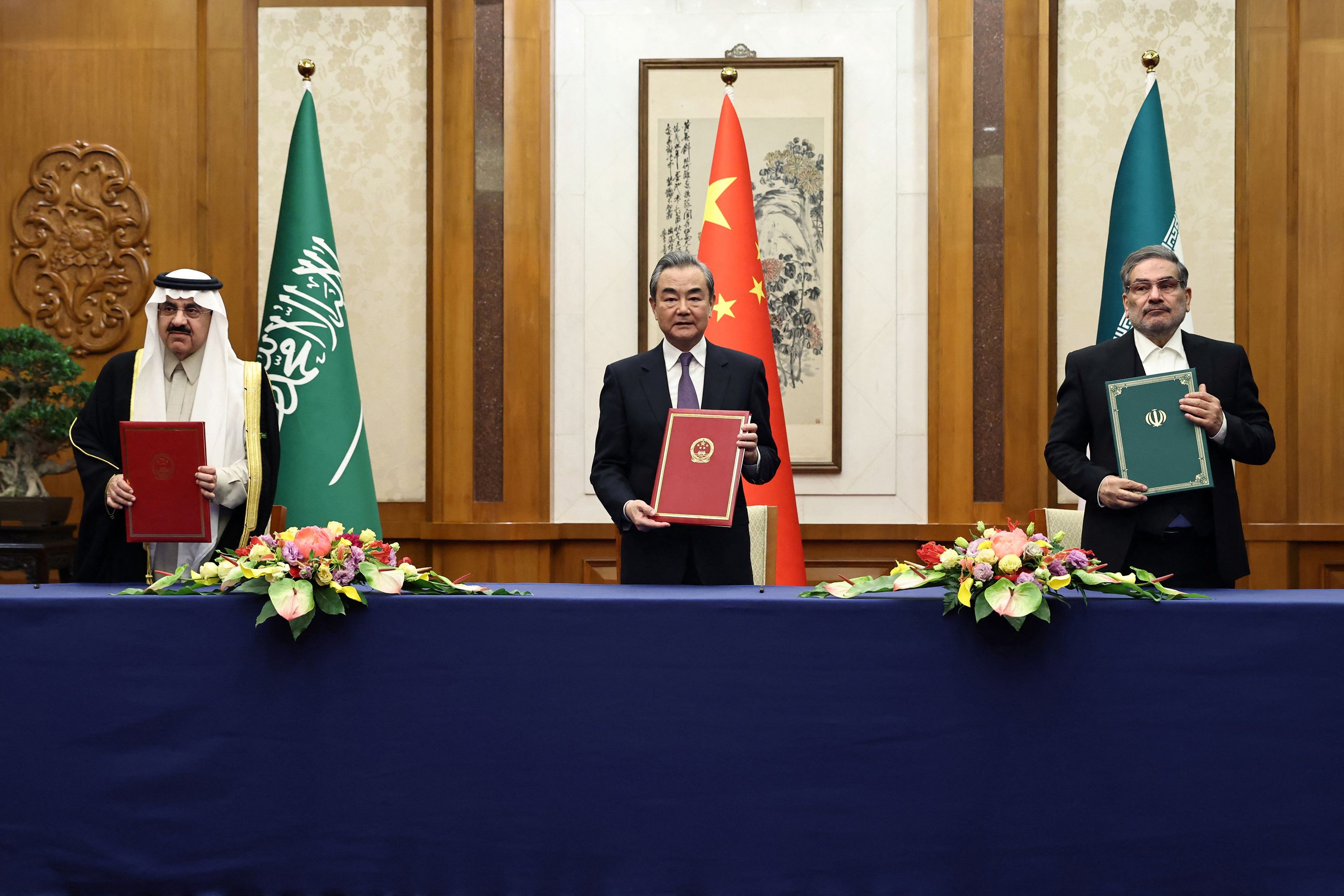EU: Iran-Saudi Agreement Can Help Stabilize Region

EghtesadOnline: The European Union said the recent agreement on the restoration of relations between Iran and Saudi Arabia can contribute to the stabilization of the region as a whole, since both countries are central for regional security.
The European Union said the recent agreement on the restoration of relations between Iran and Saudi Arabia can contribute to the stabilization of the region as a whole, since both countries are central for regional security.
In a statement on Saturday, the EU welcomed the agreement, saying the bloc looks forward to its implementation.
“The EU acknowledges the diplomatic efforts leading to this important step,” said a statement by Peter Stano, spokesperson for the EU Foreign Affairs and Security Policy.
It added that promoting peace and stability and achieving de-escalation of tensions in the broader Middle East are key priorities for the EU.
“EU remains ready to engage with all actors in the region in a gradual and inclusive approach, and in full transparency.”
Iran and Saudi Arabia on Friday agreed to restore their diplomatic ties after seven years of hostility.
The two countries had severed diplomatic ties in 2016 after a group of Iranians stormed the Saudi embassy following the kingdom’s execution of a prominent Shia cleric.
They have also been at odds over a host of regional issues, including the war in Yemen where they supported opposing sides.
Both sides had been showing signs of interest in reconciliation for some time, marked by five rounds of negotiations in the Iraqi capital Baghdad, as well as mediatory efforts by the Sultanate of Oman.
The recent deal was reached as a result of several days of intensive negotiations brokered by China in Beijing.
Despite its rocky relations with China, the United States says it welcomes Beijing’s efforts to help end the war in Yemen and de-escalate tensions in the region.
“This is not about China. We support any effort to de-escalate tensions in the region. We think that’s in our interests,” White House National Security Spokesperson John Kirby said in a briefing to reporters Friday.
He added that regardless of what the interest was or who sat down at the table, if it can be sustained and the war in Yemen can end, “in the end we welcome that.”
At the same time, Kirby sought to downplay the development, underscoring that the US has also worked on de-escalation through its own “effective combination of deterrence and diplomacy.”
He noted that the roadmap announced Friday in Beijing appeared similar to plans negotiated in Baghdad and Muscat, which the US supported.
“It really does remain to be seen whether the Iranians are going to honor their side of the deal,” Kirby asserted.
Right Direction
Based on a joint statement, Tehran and Riyadh agreed reopen their embassies and missions within a period not exceeding two months.
“The agreement includes their affirmation of the respect for the sovereignty of states and the non-interference in internal affairs,” the statement said.
Iranian Foreign Minister Hossein Amir-Abdollahian hinted at more to come.
“The neighborhood policy, as the key axis of the Iranian government’s foreign policy, is strongly moving in the right direction and the diplomatic apparatus is actively behind the preparation of more regional steps,” he wrote on Twitter.
Saudi Foreign Minister Prince Faisal bin Farhan Al Saud said on state television that Riyadh “favored political solutions and dialogue.”
China also described it as a “victory for dialogue and peace.”
United Nations Secretary-General Antonio Guterres welcomed the deal and praised China, Oman and Iraq for promoting the talks.
“Good neighborly relations between Iran and Saudi Arabia are essential for the stability of the [Persian] Gulf region,” UN spokesperson Stephane Dujarric said in a statement.
“The Secretary-General reiterates his readiness to use his good offices to further advance regional dialogue to ensure durable peace and security in the [Persian] Gulf region,” he said.
Oman’s Foreign Minister Badr Albusaidi called the deal “a win-win for everyone” that will benefit regional and global security.
“We hope in the longer term there’s also potential for increasing economic benefits for all.”
Iraq also said on its state news agency that Baghdad welcomes “turning a new page” between Iran and Saudi Arabia.
The agreement was also welcomed by other fellow Persian Gulf states the United Arab Emirates, Qatar, Bahrain and Kuwait, as well as Egypt and Turkey.


